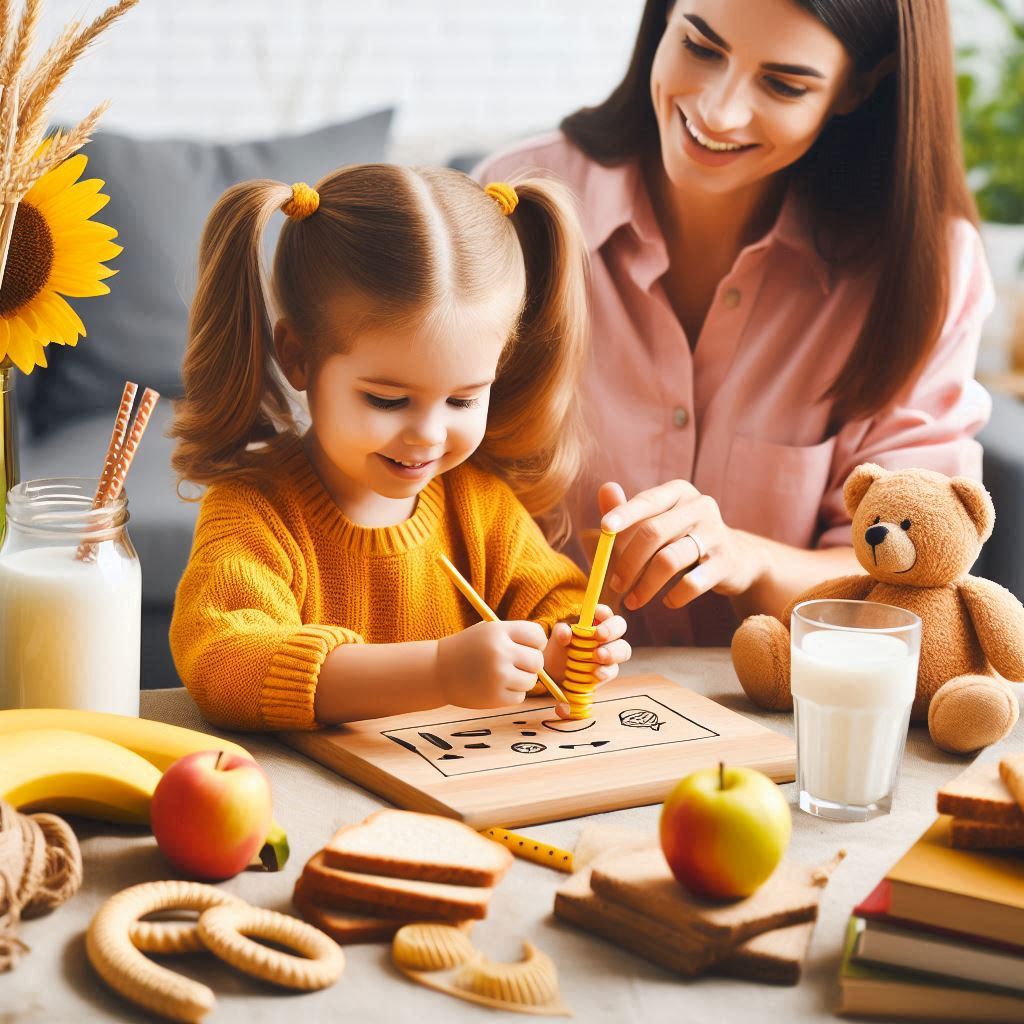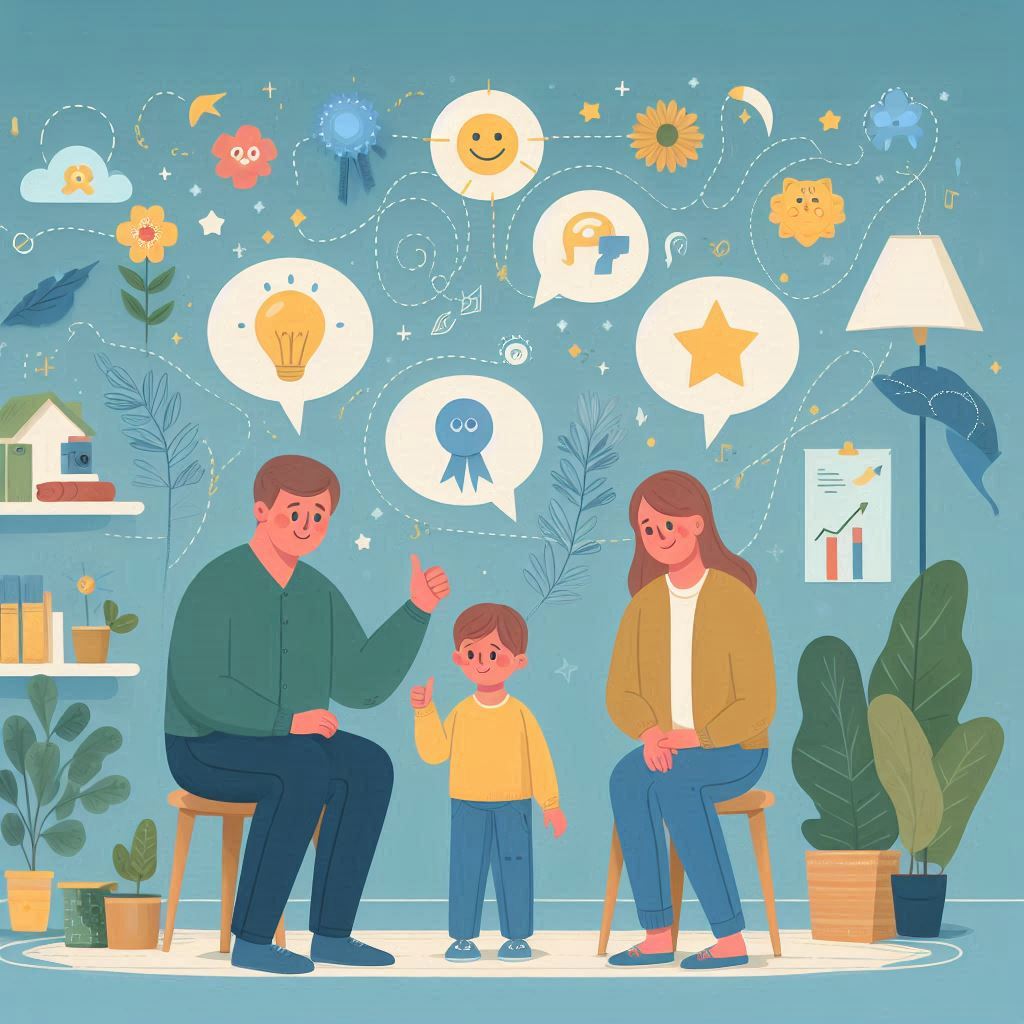Confidence and the ability to communicate well with others are two crucial skills that shape a child’s success in life. A child who believes in themselves is more likely to take risks, embrace challenges, and recover from setbacks. Equally important, strong communication skills help children build meaningful relationships, express themselves clearly, and navigate social situations.
Building self-confidence and developing communication skills are gradual processes that begin at home and continue throughout a child’s development. In this article, we’ll explore how parents can help their children build confidence and develop effective communication skills in a way that is simple, natural, and respectful to their personality and needs.
Why Confidence and Communication Matter
Before diving into how to cultivate confidence and communication in your child, it’s important to understand why these traits are essential.
Confidence
Self-confidence is the belief in one’s abilities and worth. When children feel confident, they are more likely to:
- Embrace new challenges: Confident children are more willing to try new activities, take on difficult tasks, and step outside of their comfort zones.
- Handle failure constructively: When children believe in themselves, they can view failure as a learning opportunity rather than a personal defeat.
- Develop resilience: Confidence helps children bounce back from setbacks. They’re better equipped to handle criticism, rejection, and disappointment.
- Feel happy and secure: Confident children generally have a positive outlook on life and feel secure in their relationships with others.
Communication
Effective communication allows children to express their thoughts, feelings, and needs clearly. It also helps them to:
- Build healthy relationships: Good communication skills allow children to form strong friendships and understand others’ emotions.
- Resolve conflicts peacefully: A child who knows how to communicate can handle disagreements without resorting to aggression or withdrawing.
- Navigate social situations: Communication skills make it easier for children to participate in group activities, ask for help when needed, and engage with new people.
- Feel understood: Being able to express themselves helps children feel seen and heard, which contributes to their overall well-being.
Together, confidence and communication form a solid foundation for personal growth, academic success, and emotional health.

1. Start by Building a Secure Attachment
The foundation of self-confidence begins in early childhood through the development of a secure attachment with a caregiver. A secure attachment forms when a child feels safe, loved, and supported by their parents or guardians. This emotional bond creates a sense of trust that allows the child to explore the world with confidence.
Provide Emotional Support
Children need to feel that their emotions are validated and understood. Parents should respond to their child’s needs with empathy and care. For instance, if your child is upset because they failed a test, instead of dismissing their feelings, acknowledge their frustration by saying, “I can see you’re really upset about this. Let’s talk about what happened.”
When children know they can rely on their parents for emotional support, they are more likely to develop a strong sense of self-worth.
Offer Consistent Encouragement
Encouragement is key to building confidence. Recognize and celebrate your child’s efforts rather than focusing solely on the outcome. For example, if your child is working on a difficult puzzle, instead of saying, “Wow, you finished it,” you can say, “I’m proud of how hard you worked on this. You didn’t give up even when it got tricky.” This teaches children that perseverance is valuable and that success comes from effort, not just innate ability.

2. Foster Independence and Responsibility
Confidence grows when children are given opportunities to make decisions and solve problems on their own. Allowing your child to take on age-appropriate responsibilities helps them build a sense of autonomy and capability.
Let Your Child Make Choices
Giving children choices allows them to feel empowered. Start with small decisions, such as letting them choose their clothes for the day or decide what they want for lunch. As they grow older, offer more significant choices, such as deciding how to spend their allowance or which extracurricular activities to pursue.
Allowing children to make decisions—even if they’re small ones—helps them feel in control of their lives, which builds confidence.
Encourage Problem-Solving
When your child encounters a problem, resist the urge to solve it for them right away. Instead, guide them through the process of finding a solution. Ask open-ended questions like, “What do you think we could do to fix this?” or “How do you think we could make this situation better?”
Teaching your child to solve problems independently boosts their confidence in their ability to handle challenges.

3. Teach Positive Self-Talk
The way children talk to themselves plays a big role in shaping their self-esteem. Negative self-talk—such as “I’m stupid” or “I can’t do anything right”—can damage their confidence and lead to feelings of inadequacy. On the other hand, positive self-talk encourages children to believe in their abilities and maintain a growth mindset.
Model Positive Self-Talk
Children learn a lot from observing their parents. If you model positive self-talk in your own life, your child is likely to pick up on this behavior. For instance, if you’re facing a challenge, you might say aloud, “This is hard, but I know I can figure it out if I keep trying.” Hearing you talk positively about yourself shows your child that it’s okay to struggle and that they can overcome obstacles.
Help Your Child Reframe Negative Thoughts
When your child engages in negative self-talk, help them reframe their thoughts. For example, if your child says, “I’m terrible at math,” you could respond, “Math is tough, but remember how much you’ve improved since the beginning of the year. It’s okay to find it hard, but you’re getting better every day.”
Teaching children to replace negative thoughts with more constructive ones helps them build confidence in their ability to learn and grow.
4. Encourage Social Interaction and Teach Social Skills
Developing communication skills starts with giving children opportunities to interact with others. Whether it’s with peers, teachers, or family members, social interactions help children learn how to navigate different social dynamics and express themselves effectively.
Create Opportunities for Social Interaction
Encourage your child to engage in social activities that interest them. Whether it’s joining a sports team, participating in a club, or attending playdates, these experiences provide valuable opportunities for learning how to communicate and cooperate with others.
When children have regular opportunities to interact with peers, they build confidence in their ability to form relationships and navigate social situations.
Teach Empathy and Active Listening
Communication isn’t just about talking—it’s also about listening. Teach your child the importance of active listening by encouraging them to pay attention when others are speaking, ask questions, and show empathy.
For example, if your child’s friend is upset, you might say, “It looks like your friend is feeling sad. What do you think we can do to help them feel better?” Teaching empathy helps children understand others’ emotions, which is a key component of effective communication.

5. Support Group Activities and Teamwork
Participating in group activities teaches children how to work collaboratively, resolve conflicts, and share ideas—all important aspects of communication. Group settings also help children learn how to express their thoughts while respecting the opinions of others.
Encourage Team Sports or Group Projects
Team sports and group projects provide structured environments where children can practice communication and teamwork. These activities teach children how to share responsibilities, solve problems together, and communicate effectively with others.
Even activities like board games or family projects can help children learn the value of teamwork and cooperation. The more they practice these skills, the more confident they will become in their ability to work with others.
6. Provide Constructive Feedback and Praise
While it’s important to praise your child for their efforts, it’s equally important to provide constructive feedback when necessary. Feedback helps children understand how they can improve, but it should always be delivered in a way that encourages growth rather than discouraging them.
Give Specific Praise
When praising your child, be specific about what they did well. Instead of saying, “Good job,” try saying, “I really liked how you listened to your friend when they were talking. That was very kind of you.” Specific praise helps children understand what behaviors are positive and encourages them to continue those behaviors.
Offer Feedback with Care
If your child struggles with a social situation or lacks confidence in a particular area, offer feedback in a supportive way. For example, if your child interrupted someone during a conversation, you could say, “I noticed you were really excited to share your idea, but it’s important to wait until the other person is finished talking. Let’s practice how to take turns in conversations.”
Constructive feedback should be delivered in a way that builds your child’s skills while maintaining their self-esteem.
7. Model Confidence and Communication Skills
Children learn by watching their parents and other adults in their lives. If you want to help your child become more confident and communicative, it’s important to model these behaviors yourself.
Be Open About Your Own Challenges
Share your own experiences with your child, especially when you face challenges. For example, if you’re nervous about a presentation at work, you might say, “I’m a little nervous about my presentation, but I know I’ve prepared well, and I’m going to do my best.” This shows your child that everyone struggles sometimes, but with effort and practice, they can overcome challenges.
Demonstrate Good Communication
When interacting with your child or others, demonstrate good communication skills. Make eye contact, listen actively, and express yourself clearly. Your child will observe these behaviors and learn how to apply them in their own interactions.

Helping your child become confident and communicate effectively with others is one of the most valuable gifts you can give them. By creating a supportive environment, encouraging independence, teaching positive self-talk, and providing opportunities for social interaction, you can guide your child toward becoming a self-assured and socially adept individual.
It’s a gradual process, but with patience, empathy, and consistent guidance, your child will develop the skills they need to navigate the world with confidence and build meaningful relationships with others.
